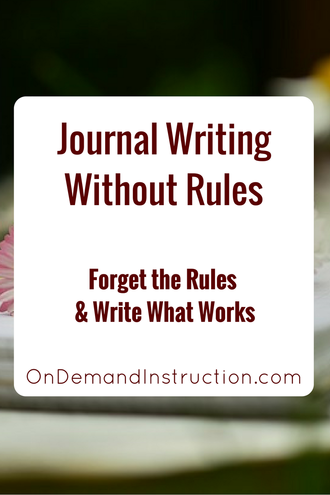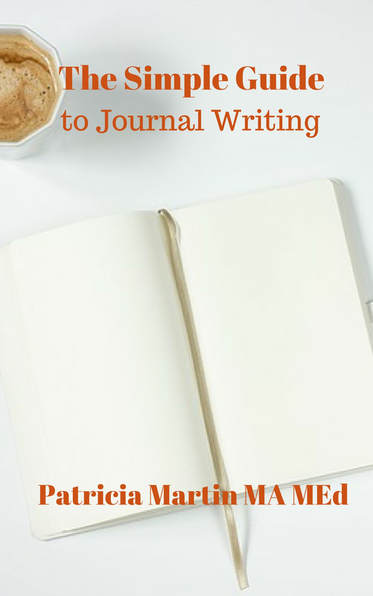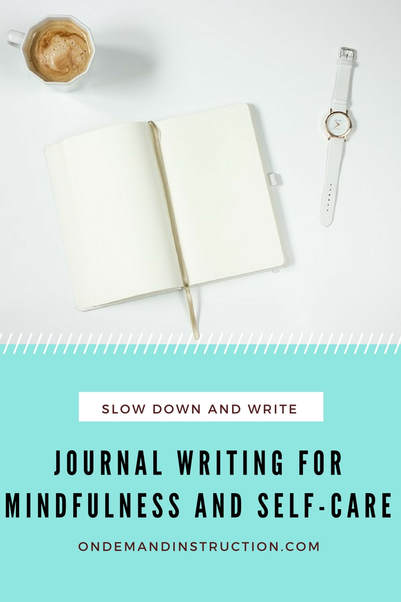 A couple of weeks ago, I taught a workshop at a local art gallery on different ways to use a journal. After I let the group know the topic I planned to cover for the evening, their melted facial expressions told me they were not excited to delve into journal writing for two hours on an otherwise perfect Friday evening. For some people, the idea of journal writing is a real snoozer. Does anyone really want to write about all the things that happened throughout the day? Those words of what you were feeling, thinking, and worried about are then indelibly marked on sheets of paper to last into eternity. Ugh. These folks had the wrong idea about journal writing, because to them journaling was a stiff, rigid practice with too many rules and a dull outcome. After I saw the looks of dread on their faces, I asked, “Who journals?” Nope. Not one. Not one person spoke up. A couple people mentioned that they journaled in their teen years but no one journaled as an adult. So, I had to admit it, “I don’t journal either.” I rephrased that. “I don’t journal in the manner that many of us were taught ages ago, which includes writing down all the garbage people said, the painful events, and the awful emotions. I have never journaled like that and never plan to.” I let the folks at my workshop know that my journaling practice is completely different than the doom and gloom they predicted. At this, their faces lit up. I do journal for creative development and exploration. Writing down the awful, bad, and ugly does nothing to drive my creativity forward, but when I journal about the books I’m reading, I can hold onto those wonderful words and cherish them a little longer. When I journal about ideas that I have for stories, I can delve deeper into that as a brainstorm before committing myself to writing scenes. When I write down memories of the past (like how hilarious my daughter was when learning to talk), I can save those tidbits and put them together into a scrapbook project of memories. Unfortunately, I think some of us have the idea that journal writing has to look and feel a certain way, but that is not the case at all. Our journals can provide creative, emotional, and intellectual space to explore, create, reflect, and organize. So, as we journal, keep in mind that journal writers have the flexibility to do whatever they want. Journal Writer’s Rules to Break 1. Write about the past. Or don’t. Journal writers can write about the past, can jot down all the good, the bad, and the ugly. Write about all the wonderful memories of childhood to pass onto your kids so that they know who you are, how you grew up, and what events made you into the person you are today. Write about the horrible, awful, embarrassing events of the past. Get those words on paper then burn the paper, take it out of the fire and yell at it, then burn it again. Let go of the past is a fiery, sobbing, screaming banshee of a cathartic journal writing experience. Or you can totally ignore the past altogether. You don’t live there anymore anyway. 2. Write beautifully. Or scribble like an angry toddler. Write in complete sentences. Use beautiful penmanship. Decorate your journal’s pages with stencils, watercolor paintings, stencils, and aesthetic artwork. Think about your art and design before you start then work the words from the journal with the artwork; combine it all into a piece of living art that will fill you with excitement every time you look at it. Remember Emily Dickinson? Can you imagine what would have happened if her pages were scribbled up garbled goo? Your journals are the same thing—time capsules of artistic greatness for your children to find decades in the future, so make them look good. Or scribble as fast as you can because in reality you ten thousand things to do every. damn. day. And worrying about how pretty the pages is will not make a difference. Just get those words on the page. In fact, make the words impossible to read. Purposely write so horribly that no one can read it; that way you can write anything you want to and no one will know any better. 3. Write about deep, valuable messages. Or write gibberish. A journal is more valuable when it overflows with the deep, reflective, considerate messages that once read will change the lives of readers forever. A journal must burst forth with imaginative content that changes people for the better. A journal should be the impetus of training for a marathon, eating organic, and saving the planet. Make it flowery, make it masterful, and make it matter. Or write about which cookie recipes are easiest and why you wish you had a hammock on the back porch to sleep somewhere else when your husband snores. If your journal is a collection of jokes, weird ideas, or rhetorical questions, that is fine. Write what works for you not what works for someone else. 4. Think about how to market your journal. Better yet stay sane and don’t. Think about how you can turn your journal into a memoir. Hey, Ben Franklin did it. So did cool people like Carrie Fischer and Bruce Springsteen. Be someone cool. Write a journal that just happens to contain such valuable stories that there is just no choice but to turn it into a memoir, and make millions as you giggle yourself to sleep while on the New York Times bestseller’s list. Or stop trying to monetize writing and enjoy it for what it is that is worth more than dollars—creative therapy. We are too wrapped up into making money that we aren’t making good lives. 5. Put your best self on paper. Or be real with yourself. Your journal should be representative of your best self, your true self. Your journal should be a polished up, shining, expensive designer version of who and what you really are—an angelic creature of perfection. Only the journal that is truly Pinterest worthy of tens of thousands of repins reflects the true inner you and is worth writing down. Or stop trying to be something you think social media wants and just be cool with being you. In conclusion, write about whatever, whenever, however. Make it pretty. Scribble. Be happy, angry, sad, and everything in between. Your journal is yours. Journal writers are not beholden to meet anyone’s expectations of what a journal should look, feel, and smell like. If you are inspired to create a hit list of all the people you’d love to lob moldy tomatoes at, do it. If you really want to write your spouse letters about the 100 things you do that drive you insane, go for it. If your journal is impossible to read through the pencil smudges, eraser burns, and coffee stains, all the better. It’s your journal. Do whatever you want with it. Break the rules. All of them. Related Blog Posts |
About the SiteWelcome, Writers! Archives
September 2023
|






 RSS Feed
RSS Feed